Code wheels, poison, and star maps: the creative ways old games fought piracy
Including Monkey Island's infamous Dial-a-Pirate.
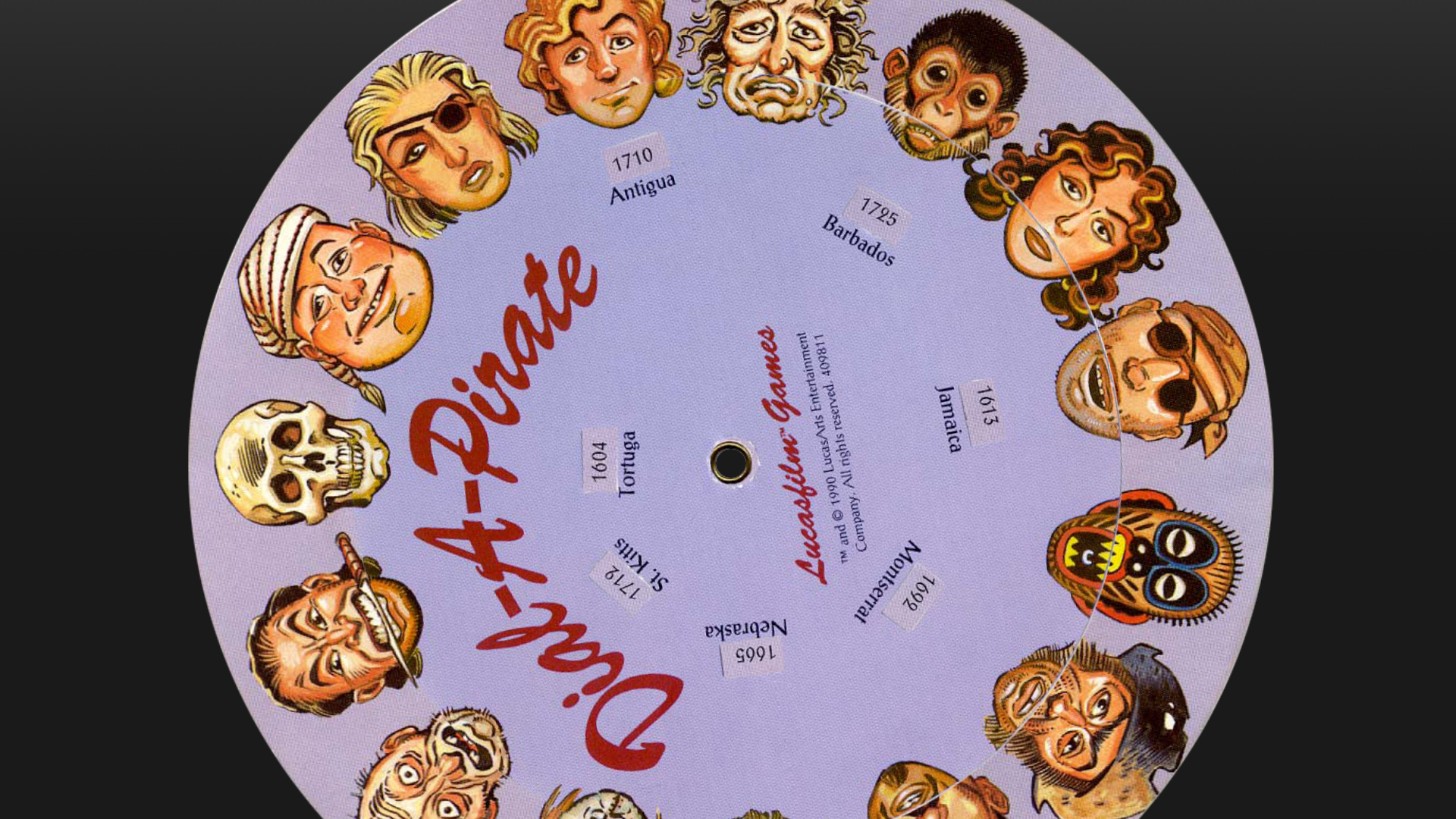
DRM is a dirty word these days, but copy protection is by no means a new phenomenon. In the early days of PC gaming, developers dreamed up a number of interesting ways to stop people making copies and pirating their games. A lot of the time it was pretty dull, usually involving referencing a word on a certain page of the manual. But sometimes devs used their imaginations and tried something more fun, making the process feel like a part of playing the game. Here are some notable examples from the mists of time.
Star Trek: 25th Anniversary (1992)
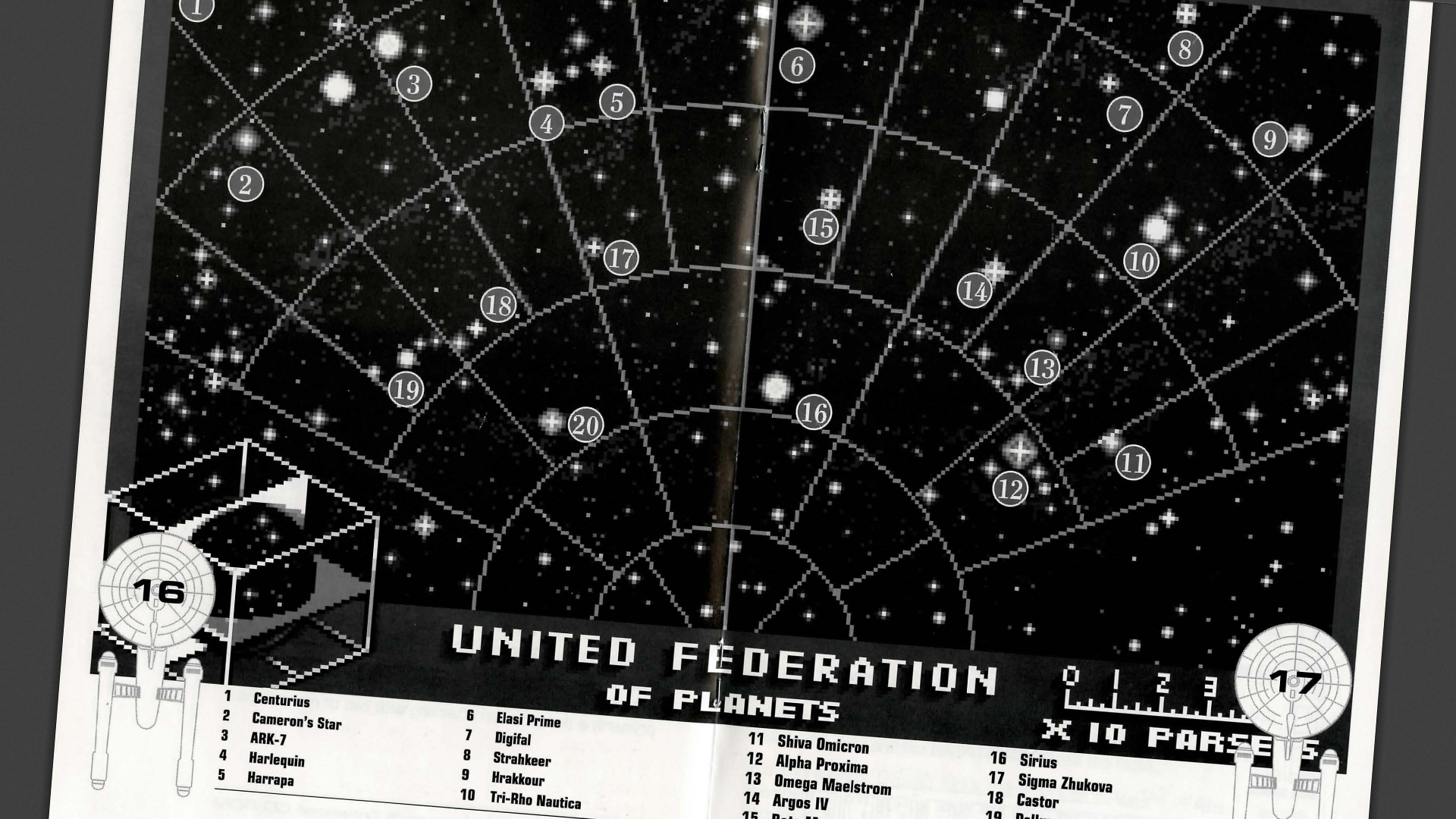
When it's time to warp to a new location in this adventure game, players without access to the manual will run into a pretty major problem: none of the systems are labelled. You need to reference a star map in the manual to warp to the correct location, otherwise you'll find yourself being attacked by enemy ships—who will continue to attack every time you punch in the wrong numbers.
Prince of Persia (1989)
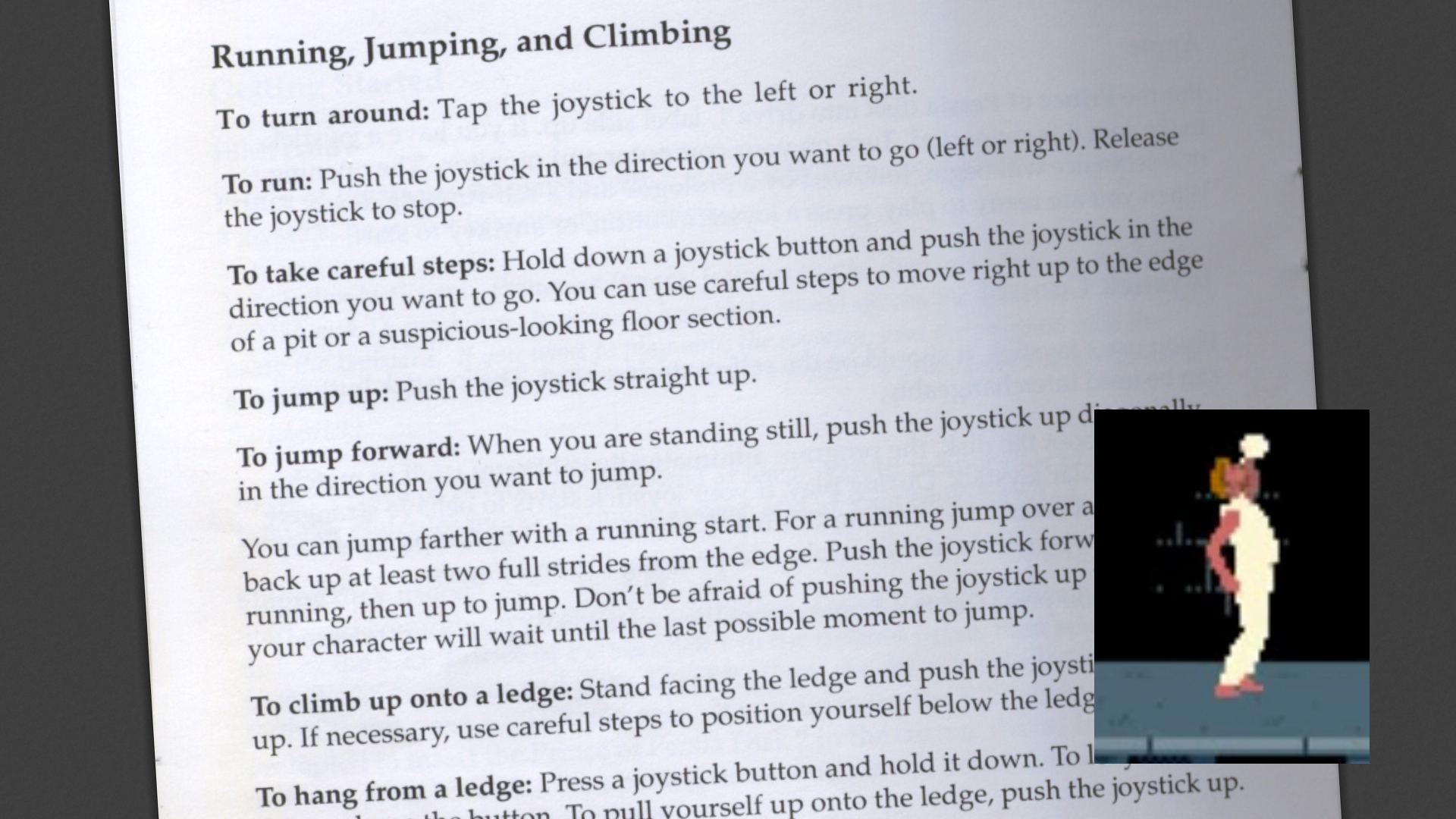
In the second level of the original Prince of Persia, you find yourself in a room filled with mysterious bottles with letters printed next to them. At the bottom of the screen a message references a page, line, and word in the game's manual, indicating the correct bottle to drink. Drink the wrong bottle three times and the Prince will be poisoned and die. Get it right and the door to the next level will open.
Metal Gear Solid (2000)
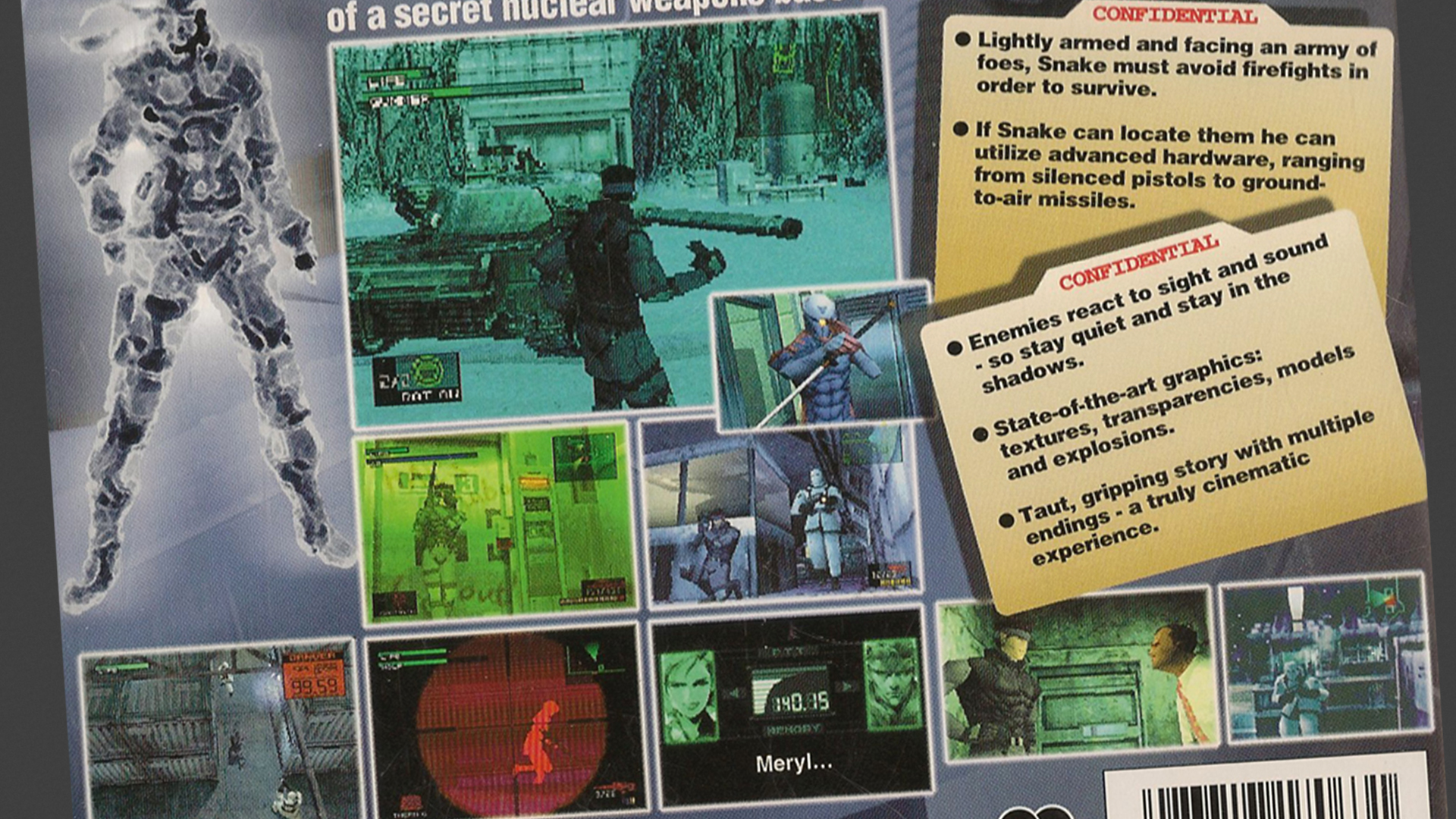
There comes a point in both the PlayStation and PC versions of Metal Gear Solid where, to progress, you need to tune into a certain radio frequency. A character says it's "on the back of the CD case", meaning the actual box the game is packaged in. At this point in the game, Snake has an unrelated disk in his inventory, which led to people trying to interact with it to learn the frequency, not realising the game was breaking the fourth wall.
Leisure Suit Larry III (1989)
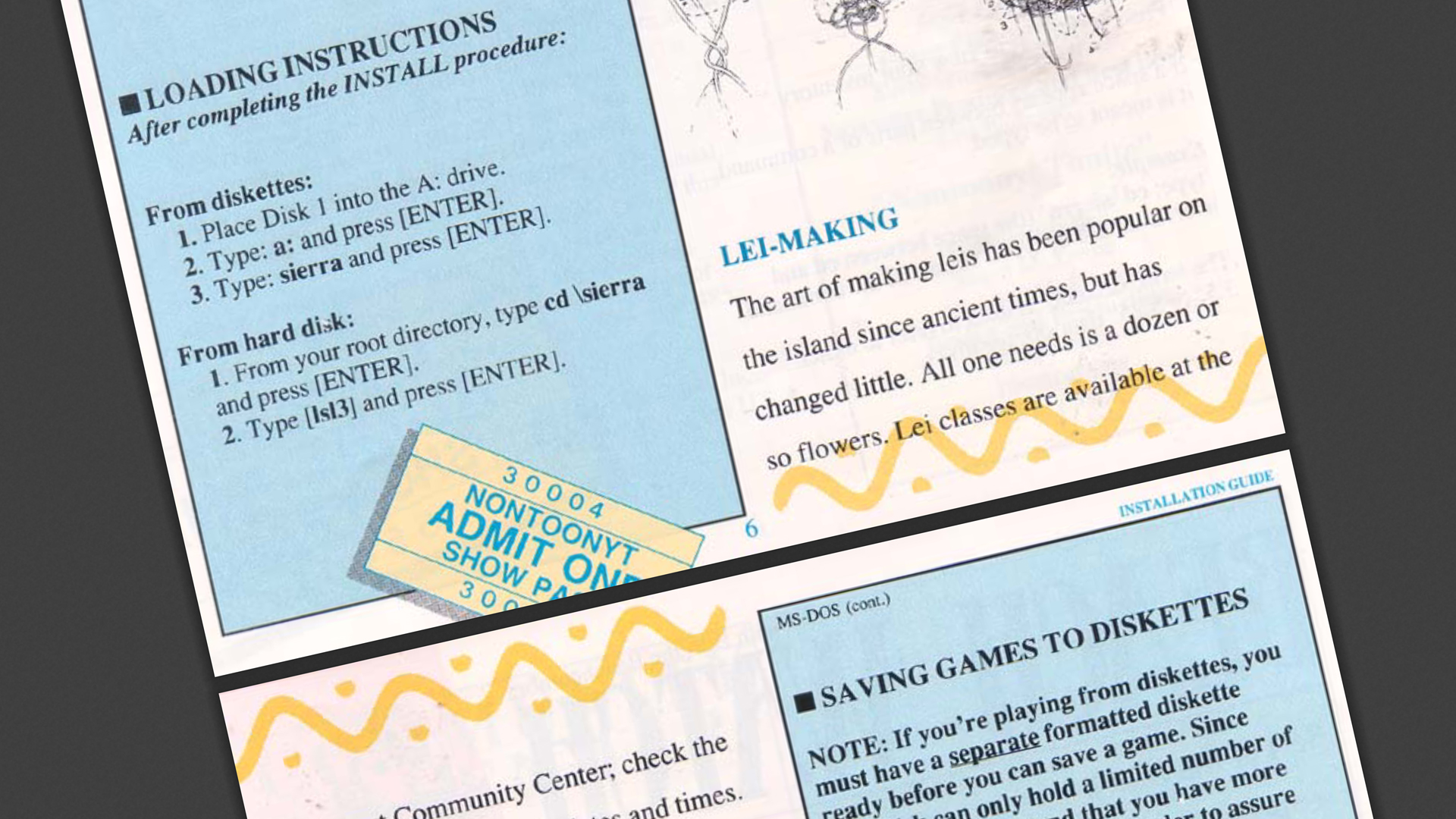
The manual for the third Leisure Suit Larry game is in the style of a tourist brochure for its tropical setting, the Hawaii-inspired island of Nontoonyt. Early on, in a casino, a bouncer blocks Larry's path and asks him for a ticket number found on a certain page of the manual. If you get it wrong, he accuses you of trying to use a counterfeit ticket and calls security, which results in an instant game over.
The Secret of Monkey Island (1990)
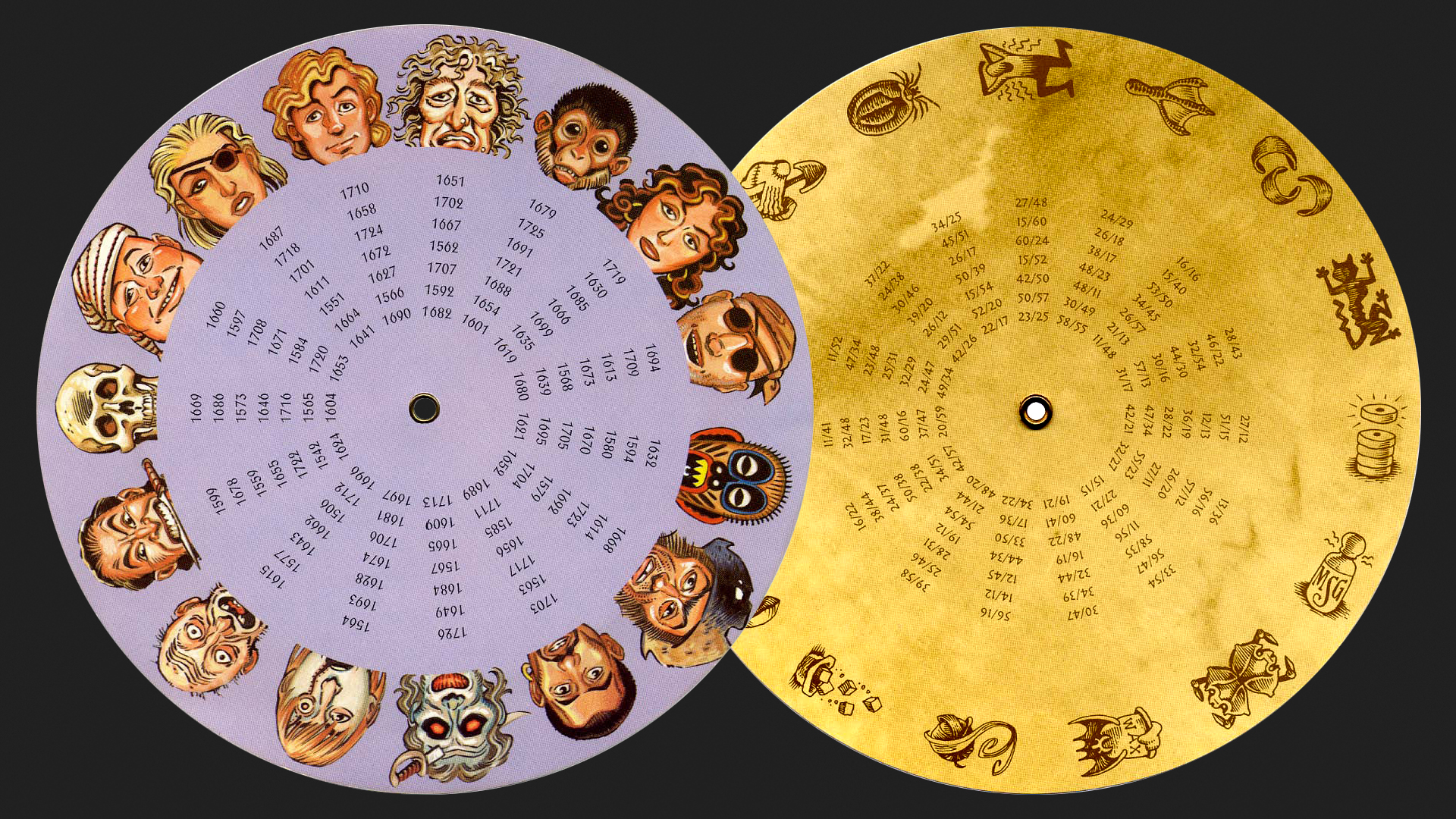
Playing old versions of The Secret of Monkey Island involves spinning a cardboard wheel lined with grotesque pirate faces to match one displayed on your screen, then inputting a date. The second game features a similar system in the form of the Mix 'n' Mojo wheel. This is probably the most well known example of physical copy protection in a PC game, and there's even a digital version.
The Colonel's Bequest (1989)
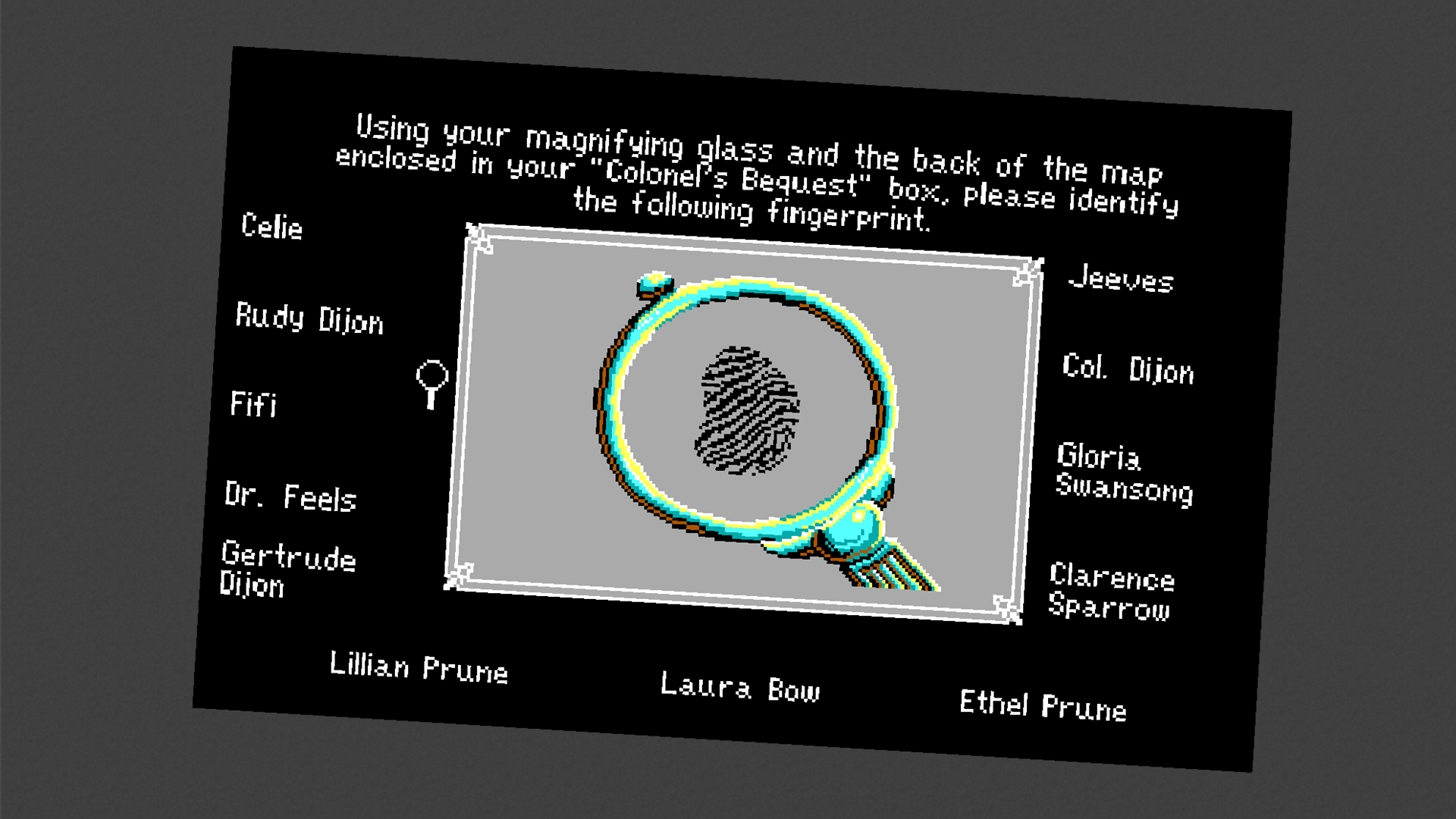
This classic Sierra mystery features a pretty elaborate form of copy protection. The game comes with a cardboard magnifying glass, with a red plastic 'lens', that reveals fingerprints on the back of a map. Start the game and you'll be shown a random fingerprint, and must reference the map to correctly identify who it belongs to. That's a lot of effort just to start a game, but it ties into the fiction nicely.
The biggest gaming news, reviews and hardware deals
Keep up to date with the most important stories and the best deals, as picked by the PC Gamer team.
Operation Stealth (1990)
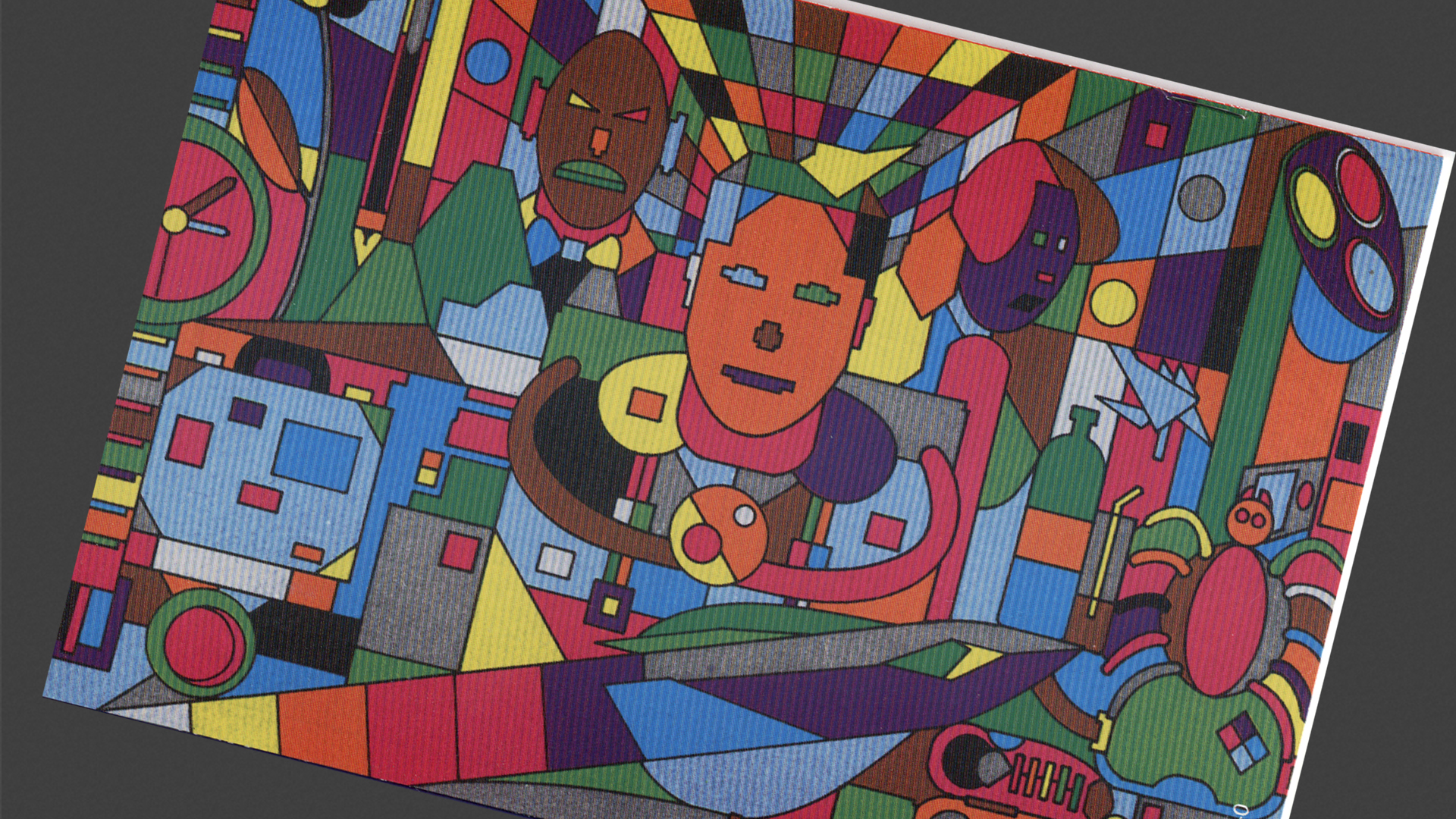
Also known as James Bond 007: The Stealth Affair in the US, this adventure game had a pretty unique form of copy protection. In the manual there's a strange, abstract illustration, like some mural from a Soviet-era apartment block. When you start the game you see a monochrome version of the illustration, and must reference the manual to tell the game which colour a highlighted area is.
If it’s set in space, Andy will probably write about it. He loves sci-fi, adventure games, taking screenshots, Twin Peaks, weird sims, Alien: Isolation, and anything with a good story.


